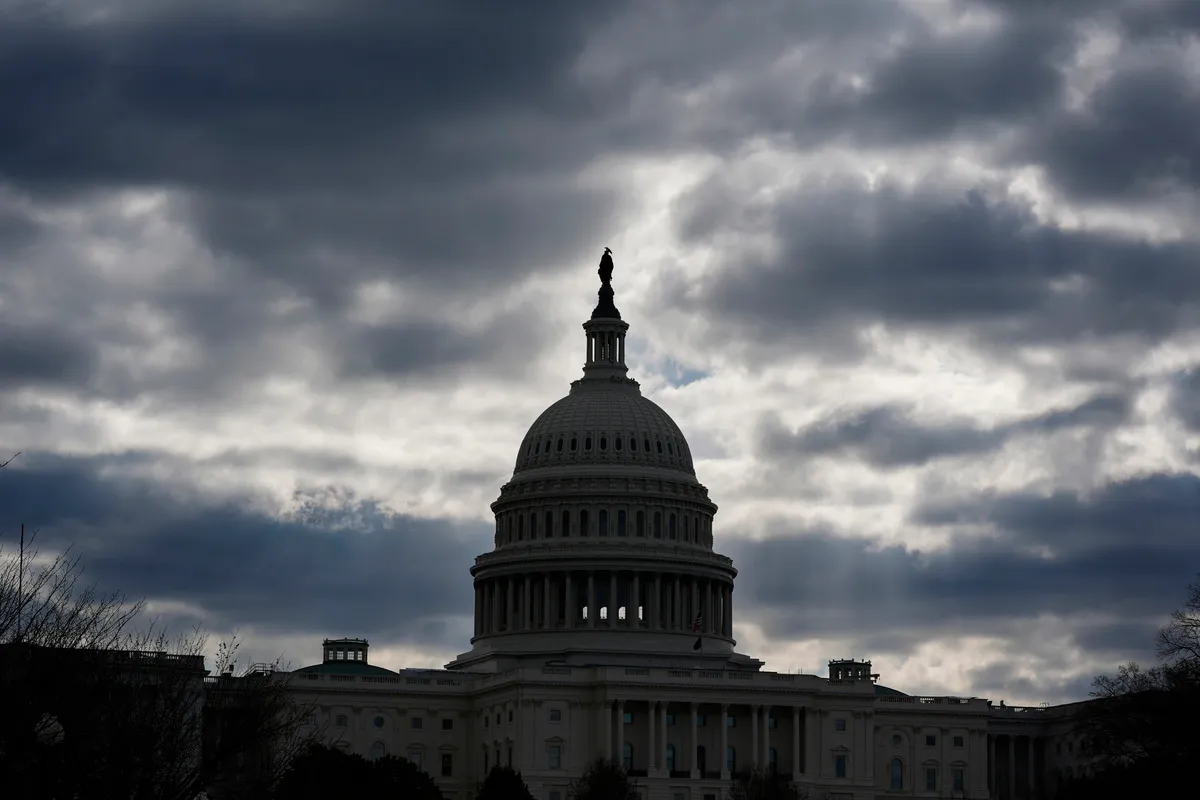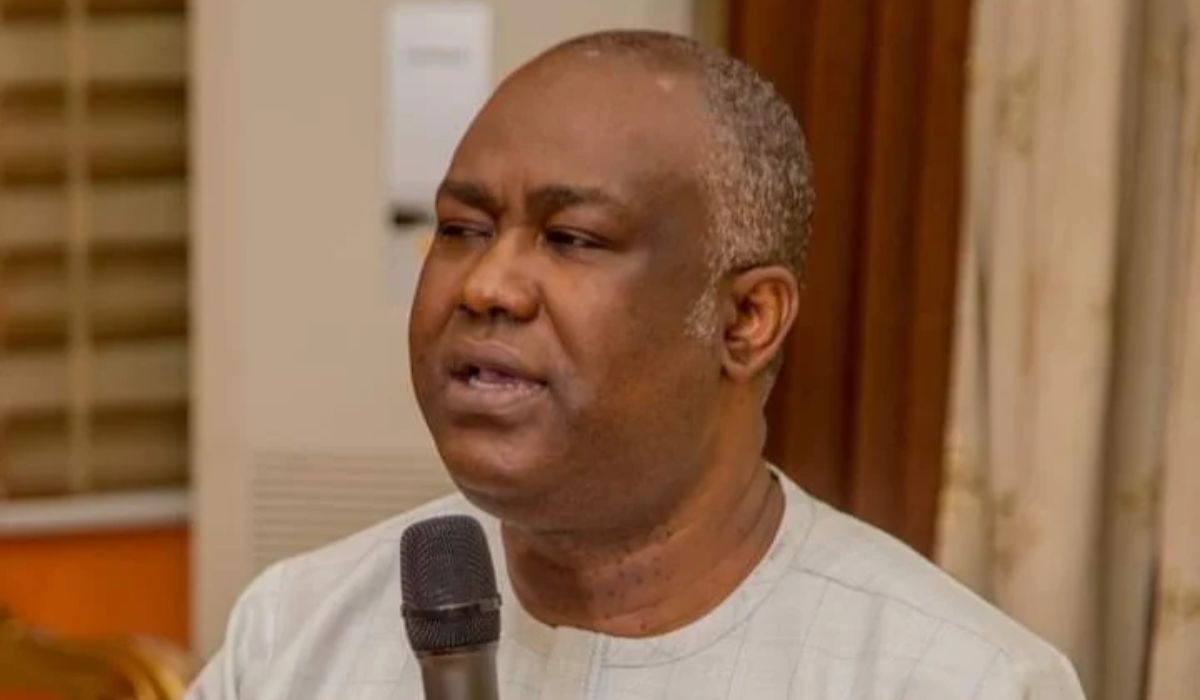
The BDN Opinion section operates independently and does not set news policies or contribute to reporting or editing articles elsewhere in the newspaper or on bangordailynews.com
Jared Golden of Lewiston represents Maine’s 2nd Congressional District in the U.S. House of Representatives.
This piece was originally published on September 26 in “ Dear Mainer,” Golden’s Substack. It is reposted here in its entirety, with permission.
Last week, I was the only Democrat in the House to vote for a deal that would prevent the federal government from shutting down on Oct.1. But the Senate rejected this stopgap measure just hours later, and House Speaker Mike Johnson is signaling he will keep members home until after the funding deadline passes.
A shutdown is just around the corner. I’m frustrated that once again, brinksmanship over the federal budget is putting Americans at risk.
The risks are as severe today as they were in March, when I voted to keep the government open and we narrowly avoided a shutdown. But the debate over the FY26 budget has also centered around health care. Members on both sides are concerned about the upcoming expiration of enhanced Affordable Care Act (ACA) tax credits that would cause some families to lose coverage and cause large spikes in monthly premiums for almost everyone who buys insurance on the ACA marketplaces.
I’ve been working for weeks with lawmakers in both parties on a proposal to prevent those price increases. We have until the end of the year to get it done, and I’m encouraged by our momentum. But a harmful government shutdown would make this work harder, not easier.
Historically, shutdowns erode the quality and availability of federal services on day one, and it gets worse each day.
If past is precedent, the Food and Drug Administration and Environmental Protection Agency will immediately freeze inspections on food, water, chemical facilities, and hazardous waste sites, while national parks like Acadia will likely close their gates. Food assistance through WIC — which serves 41% of all U.S. infants — is likely to end within days of a federal shutdown. New loans for housing and small businesses would also be paused, customer support for Social Security would get worse, and even veterans programs, Medicare, Medicaid, and disability payments are at risk if the shutdown lasts long enough.
But this is a unique administration, and banking on historical precedent is a mistake. In a shutdown, the executive branch issues guidance on how the government will operate during a lapse in funding, and it has broad flexibility in shaping those orders.
When I voted to keep the government open this spring, I warned of the expanded powers a shutdown would grant an administration that has repeatedly pushed the limits of executive power. Case in point: The White House is already preparing mass, permanent firings in the federal workforce if a shutdown does happen.
I’ve worked with my team to put together an FAQ on the impacts of a government shutdown, and my offices will be open as normal to help Mainers. But make no mistake: If federal funding lapses next week, it won’t just be federal workers who pay the price. Critical services used by all Americans will be hit hard and swiftly — with the least fortunate communities getting hurt the most.
Those pushing for Democrats to oppose a clean, short-term spending deal have made two main arguments: First, that withholding our support for a continuing resolution (CR) will give us leverage to extend the ACA tax credits. Second, that it’s an opportunity to direct the nation’s attention to the Trump administration’s actions — including its massive cuts to health care and tax giveaways to the wealthy in the GOP’s partisan “Big Beautiful Bill.”
My party’s passion for protecting affordable health care is rooted in justice, especially after Republicans’ deeply unpopular, record-setting cuts to health care this summer. But inflicting the pain of a government shutdown to gain political leverage doesn’t make a win on health care any more certain, and it guarantees real harm to many of the same people we’re trying to help.
I’d also argue that Americans are listening to critics of the president. President Donald Trump’s approval rating has declined since January, and several recent polls show him underwater on almost every major issue.
One core assumption of this strategy is that the GOP, with its total control of the federal government, will shoulder the blame of a shutdown. However, the Senate GOP’s narrow majority means Senate Democrats have the power to block the stopgap funding bill. Last week, they exercised that power. They have that right.
But in doing so, Democrats are essentially taking credit for blocking a CR that maintains spending levels set under President Joe Biden in 2023, while simultaneously saying it’s Republicans’ fault if the government shuts down. These seem contradictory, to me. The more likely outcome is Americans look at the finger pointing in Washington and blame all of us.
Thankfully, a government shutdown isn’t the only option to stand up for Americans’ health care. And the alternative is more likely to work.
As I mentioned earlier, I’m part of a bipartisan coalition of lawmakers that’s been hard at work to extend the tax credits at the center of today’s funding debate. These tax credits were established by the ACA and expanded in the Inflation Reduction Act to help reduce monthly premiums, and 85% of all Mainers who purchase plans through Maine’s marketplace are recipients.
The enhanced tax credits are scheduled to expire at the end of this year. If they do, Mainers’ premiums would increase by an average of $180 per month starting in January, with rural Mainers aged 60-64 facing the steepest spikes. Across the country, millions of self-employed workers and small business owners would see their own premiums go up by more than $11,000 a year.
That kind of increase will blow up most families’ budgets, and force many to drop their health insurance altogether. We can’t let that happen.
Our bipartisan bill would extend the credits by one year. Our coalition already includes 12 House Republicans — an essential bloc of support for passing a bill in the GOP-controlled House. And Senate Republicans are already interested in a deal, too.
As we negotiate, I see two sides who genuinely want to get to “yes,” which gives me hope that we can avert price spikes and coverage losses in January. A government shutdown only jeopardizes that work.
We need to demonstrate the courage to practice the version of politics most of us wish was the norm: Two sides acknowledging there’s a problem, and sitting down to find a workable solution.



